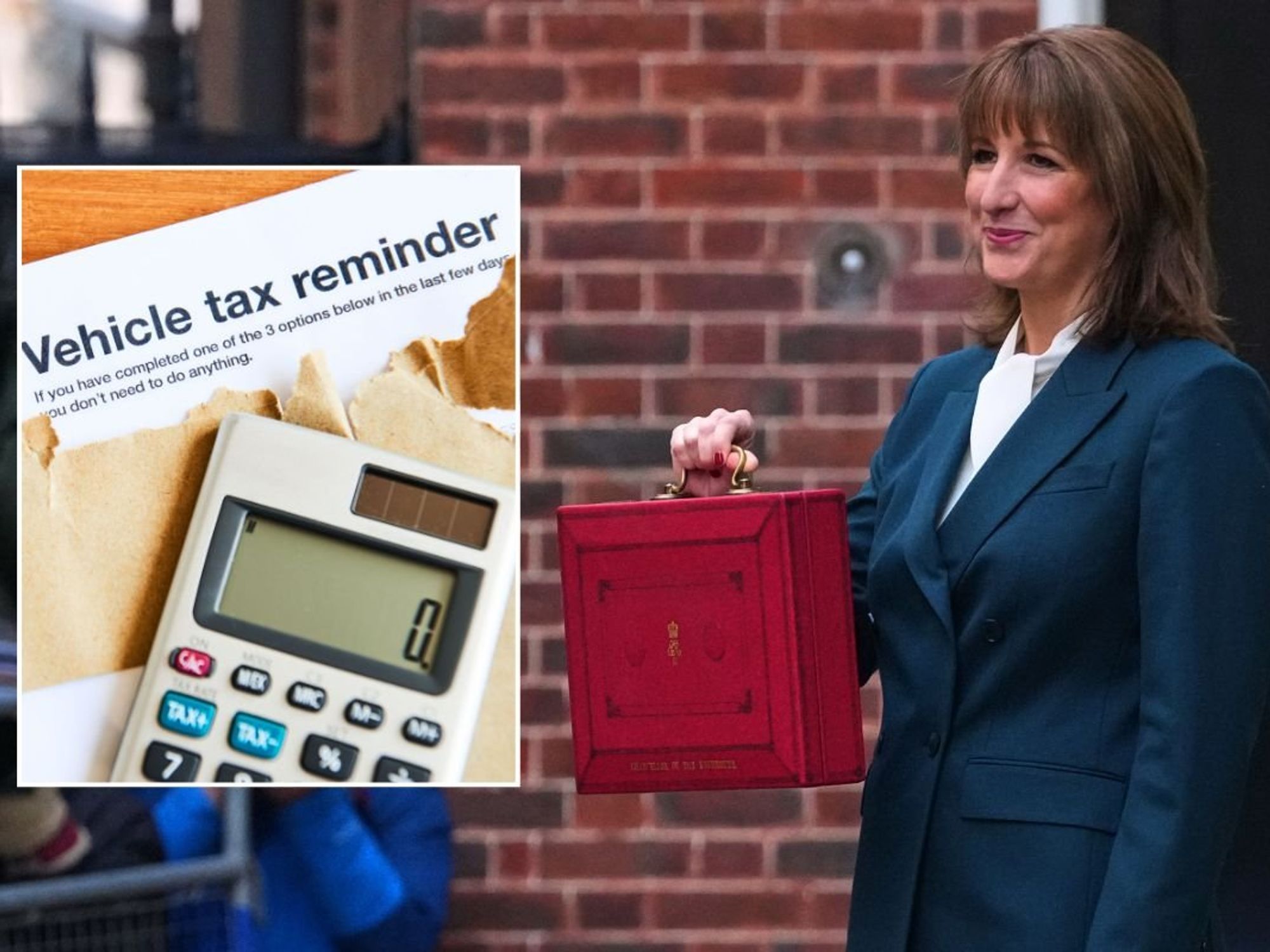EU suffers new hit as Spanish farmers join wave of protests burning tyres and blocking roads

The protests began in France and have since spread to Belgium, Ireland, Italy, Portugal and now Spain
Don't Miss
Most Read
Latest
Spanish farmers have staged blockades across the country, joining their European counterparts who are demanding better pay and working conditions in the agricultural industry.
Over the past month, farmers across the continent have been staging protests against their governments. Many struggle financially and say their jobs are threatened as food retailers are trying to bring down prices after a period of high inflation.
The protests began in France and have since spread to Belgium, Ireland, Italy, Portugal and now Spain, with all saying that they are not being paid enough, are being choked by taxes and green rules, and face unfair competition from abroad.
“With different shades, in the whole of the European Union, we have the same problems,” Donaciano Dujo, vice president of ASAJA, one the largest farmers associations in Spain, told national broadcaster TVE.
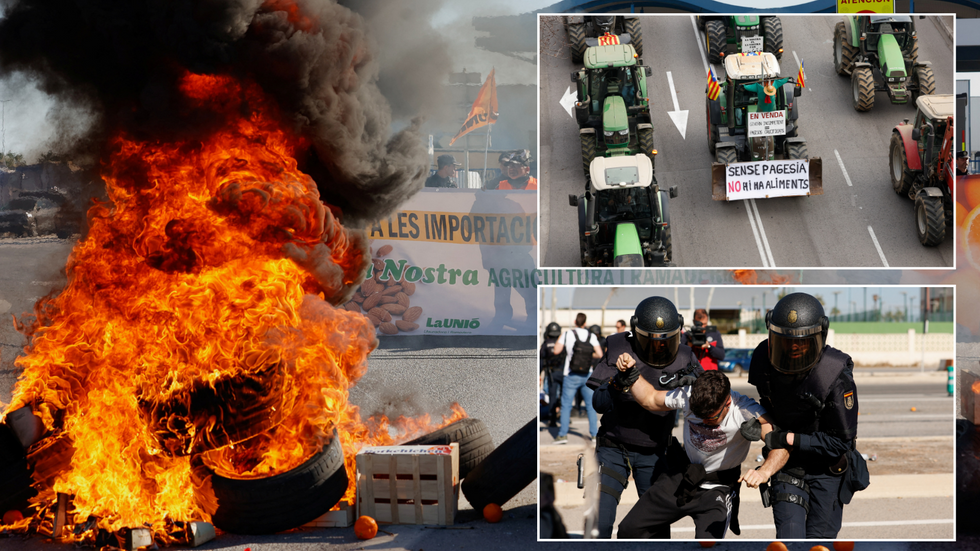
Angry Spanish farmers have blocked roads and burned tyres across the country, as the agricultural industry strikes spread across the EU
|Reuters
Yesterday, farmers took to the streets in their tractors to block roads across the country, burning tyres in their wake.
ASAJA, one of the largest farmer associations in Spain, had called for farmers' protests to begin on Thursday, however, many farmers could not wait and began the blockade two days prior.
Waving Spanish flags and wielding banners with slogans such as “without agriculture and livestock, your table is empty,” the protesters brought road and motorway traffic to a standstill.
“The countryside is fed up,” Dujo said.
LATEST DEVELOPMENTS:
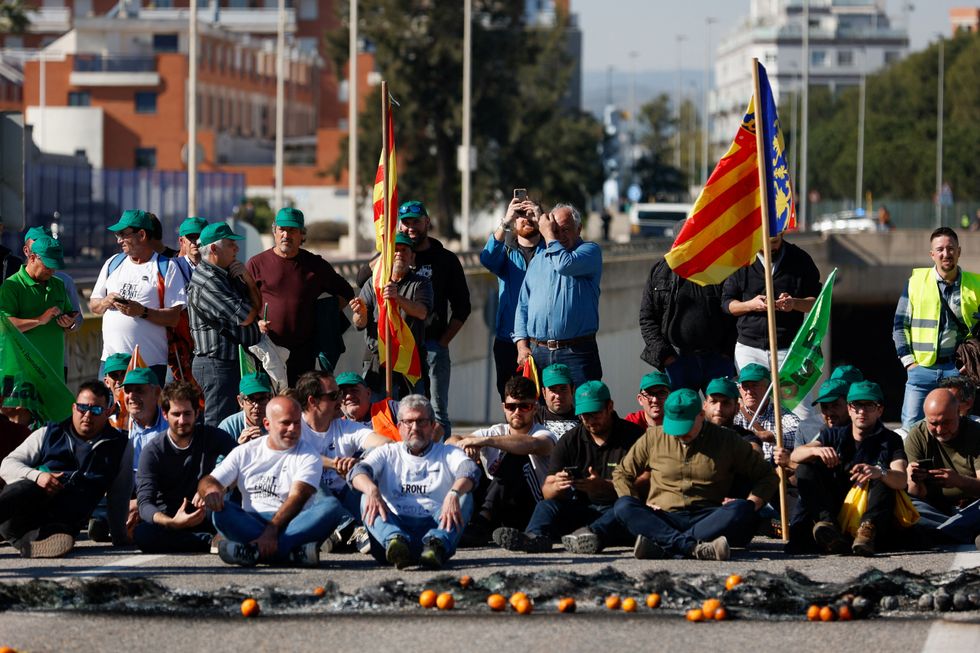
ASAJA, one of the largest farmer associations in Spain, had called for farmers' protests to begin on Thursday, however, many farmers began the blockade two days prior
|Reuters
Protests have affected the outskirts of most major cities, including Madrid, Barcelona, and Valencia.
A larger demonstration in central Madrid is planned for later this month.
“The costs, when it comes to producing wheat and barley, are very high,” a cereal farmer told the BBC.
“You've got to pay for fertiliser, pesticides, fuel - it's killing us. We have to pay very high prices and yet we sell at low prices.”
It comes as furious Belgian farmers stormed the square outside the European Parliament on February 1, travelling in tractors and wielding firecrackers.
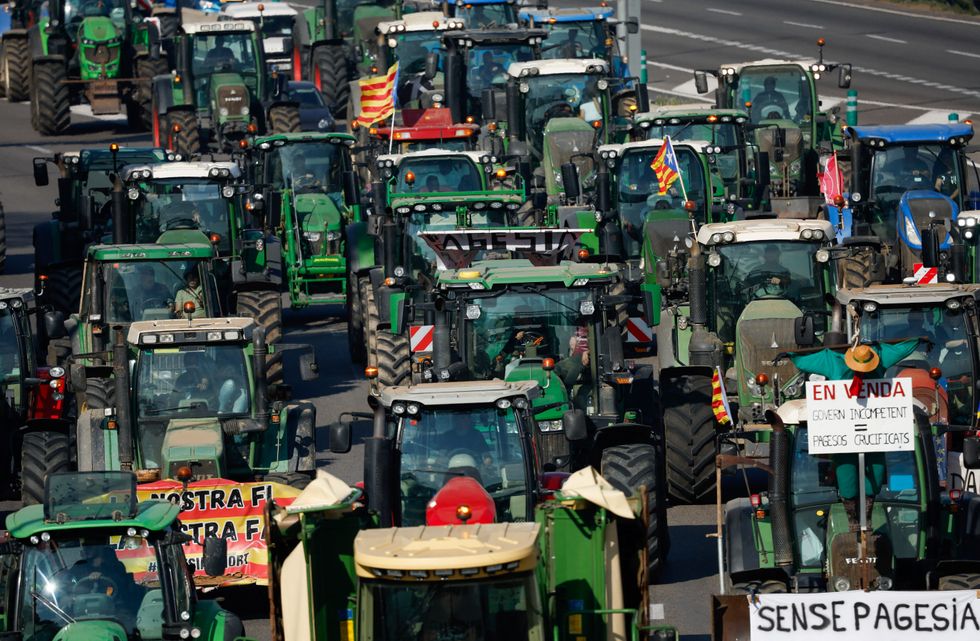
Farmers use their tractors to block roads and motorways across the country
|Reuters
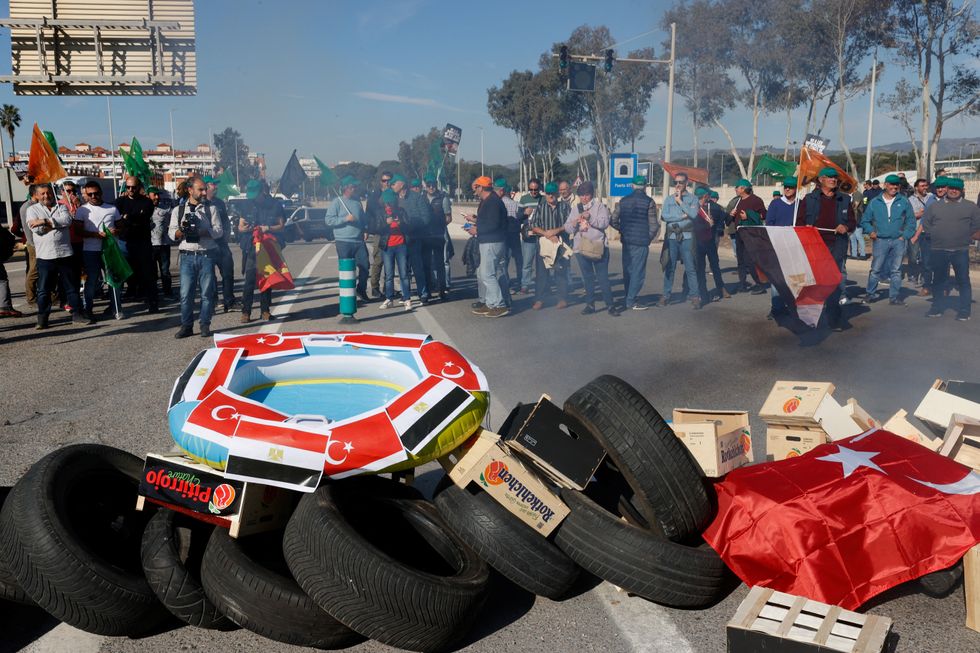
Protests have affected the outskirts of most major cities, including Madrid, Barcelona, and Valencia
|Reuters
The farmers lit a large bonfire outside the building, ahead of an EU summit which took place later that day. Police wore riot gear at the scene.
Meanwhile, in France, agricultural workers across the country cut off major roads leading into the capital, calling it their “siege of Paris”.
Almost 80 farmers were arrested after storming the Rungis food market, dubbed "the belly of Paris". The region has the largest fresh food market in the world, feeding over 12 million people daily.
The protests appear to be popular among the general public, with seven out of 10 people in France supporting the farmers' plight.










